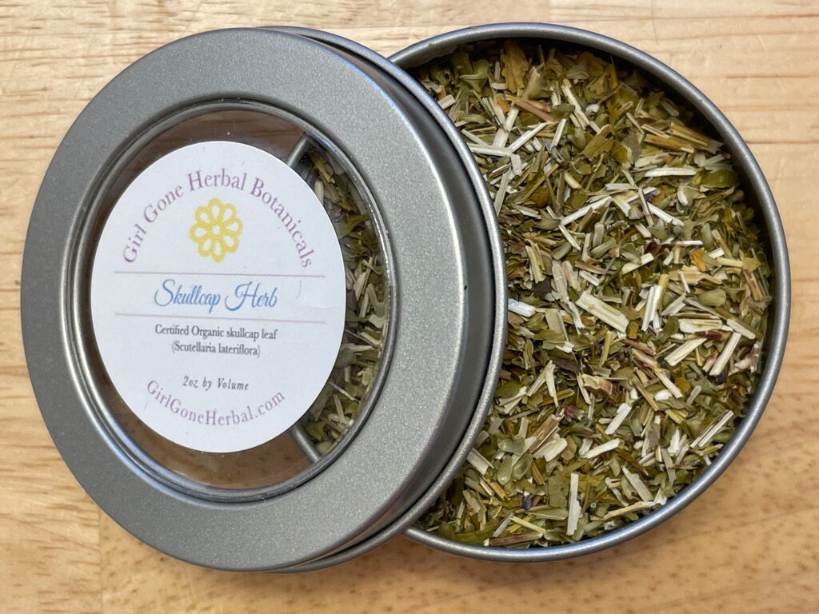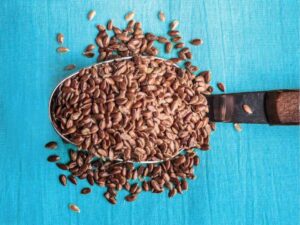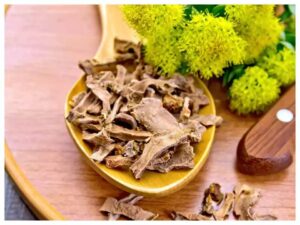The Discovery of Skullcap: A Mysterious Origin?
A Journey through History
Skullcap, also known as Scutellaria, is a genus of flowering plants that belongs to the mint family. The plant is indigenous to North America, where it has been used for medicinal purposes for centuries by indigenous tribes such as the Cherokee, Iroquois, and Potawatomi. Despite being a popular herb in traditional medicine, the exact origin of the plant remains a mystery, with no clear indication of how it was first discovered or by whom.
A Plant Shrouded in Mystery
The discovery of Skullcap remains a fascinating and perplexing topic in the world of botany and medicine. The plant’s name comes from its unique flower structure that resembles a medieval helmet or cap, with a small, flat, circular plate at the top of the flower resembling a “skull.” Some scholars believe that the plant’s unusual appearance may have played a role in its discovery, as it may have caught the attention of early explorers and naturalists.
However, there is little historical documentation on how Skullcap was first discovered or by whom. Some scholars suggest that the plant’s medicinal properties may have been discovered by indigenous peoples through trial and error or through a deep understanding of the natural world around them. Others speculate that Skullcap may have been introduced to the Western world by early explorers, who may have encountered the plant during their travels and brought it back to Europe for further study.
A Medicinal Herb with a Long History of Use
Despite its mysterious origin, Skullcap has been used for centuries by indigenous peoples in North America for its many medicinal properties. The plant was commonly used to treat a range of ailments, including fevers, headaches, anxiety, and insomnia. It was also used as a sedative, antispasmodic, and anti-inflammatory agent.
Skullcap was introduced to Europe in the late 17th century, where it quickly gained popularity among herbalists and naturalists for its medicinal properties. The plant was commonly used to treat nervous disorders, including epilepsy, hysteria, and convulsions. It was also used as a sedative and to treat insomnia, anxiety, and depression.
The Science Behind Skullcap
In recent years, scientists have begun to study the active compounds found in Skullcap and their potential health benefits. The plant contains a number of flavonoids, including baicalin, wogonin, and apigenin, which have been shown to have anti-inflammatory, antioxidant, and neuroprotective properties.
Baicalin, one of the most abundant flavonoids found in Skullcap, has been shown to have anti-inflammatory properties and may be beneficial in the treatment of inflammatory conditions such as arthritis and asthma. Wogonin has been shown to have antitumor and antimicrobial properties, while apigenin has been shown to have antioxidant and anti-inflammatory effects.
Conclusion
Despite its mysterious origins, Skullcap has been used for centuries by indigenous peoples and naturalists for its many medicinal properties. The plant’s unique flower structure and unusual appearance have captured the imagination of botanists and herbalists for centuries, while its active compounds have been the subject of scientific study in recent years.
Whether Skullcap was discovered by indigenous peoples through a deep understanding of the natural world or by early explorers who stumbled upon the plant during their travels, its legacy as a powerful medicinal herb continues to this day. With its long history of use and its potential health benefits, Skullcap remains a fascinating and perplexing topic in the world of botany and medicine.

The Many Health Benefits of Skullcap: A Comprehensive Guide
Anti-Anxiety and Stress-Relief Properties
One of the most well-known benefits of Skullcap is its anti-anxiety and stress-relief properties. The plant has been used for centuries as a natural sedative and anxiolytic, and has been shown to have a calming effect on the body and mind.
Skullcap contains flavonoids such as baicalin, which has been shown to have anxiolytic properties. Baicalin works by increasing the production of GABA, a neurotransmitter that has a calming effect on the brain. This can help reduce anxiety and promote relaxation.
In a study published in the Journal of Ethnopharmacology, researchers found that Skullcap extract had anxiolytic effects in mice. The extract was able to reduce anxiety-related behaviors and increase the time spent in open areas, indicating a reduction in anxiety.
Skullcap has also been shown to have stress-relief properties. In a study published in the Journal of Ethnopharmacology, researchers found that Skullcap extract was able to reduce the levels of stress hormones in rats. The extract was able to lower the levels of corticosterone, a hormone that is released in response to stress.
Potential Anti-Inflammatory Effects
Skullcap has also been shown to have potential anti-inflammatory effects. The plant contains flavonoids such as baicalin and wogonin, which have been shown to have anti-inflammatory properties.
In a study published in the Journal of Ethnopharmacology, researchers found that Skullcap extract was able to reduce inflammation in rats with colitis. The extract was able to reduce the levels of pro-inflammatory cytokines, indicating a reduction in inflammation.
In another study published in the Journal of Ethnopharmacology, researchers found that baicalin was able to reduce inflammation in mice with acute lung injury. The compound was able to reduce the levels of pro-inflammatory cytokines and improve lung function.
Potential Neuroprotective Effects
Skullcap has also been shown to have potential neuroprotective effects. The plant contains flavonoids such as baicalin and wogonin, which have been shown to have neuroprotective properties.
In a study published in the Journal of Ethnopharmacology, researchers found that Skullcap extract was able to improve cognitive function in rats with Alzheimer’s disease. The extract was able to reduce the levels of beta-amyloid, a protein that is associated with Alzheimer’s disease.
In another study published in the Journal of Ethnopharmacology, researchers found that baicalin was able to protect against brain damage in mice with traumatic brain injury. The compound was able to reduce the levels of oxidative stress and improve cognitive function.
Potential Anti-Cancer Effects
Skullcap has also been shown to have potential anti-cancer effects. The plant contains flavonoids such as wogonin, which have been shown to have anti-cancer properties.
In a study published in the International Journal of Oncology, researchers found that wogonin was able to inhibit the growth of prostate cancer cells. The compound was able to induce cell death in the cancer cells, indicating a potential anti-cancer effect.
In another study published in the International Journal of Oncology, researchers found that wogon in was able to inhibit the growth of colon cancer cells. The compound was able to induce cell cycle arrest and cell death in the cancer cells.
Potential Antimicrobial Effects
Skullcap has also been shown to have potential antimicrobial effects. The plant contains flavonoids such as wogonin, which have been shown to have antimicrobial properties.
In a study published in the Journal of Medicinal Food, researchers found that Skullcap extract was able to inhibit the growth of several strains of bacteria, including Staphylococcus aureus and Escherichia coli. The extract was also able to inhibit the growth of Candida albicans, a common yeast infection.
In another study published in the Journal of Ethnopharmacology, researchers found that wogonin was able to inhibit the growth of several strains of bacteria, including Staphylococcus aureus and Streptococcus pyogenes. The compound was also able to inhibit the growth of Candida albicans.
Potential Anti-Allergic Effects
Skullcap has also been shown to have potential anti-allergic effects. The plant contains flavonoids such as baicalin, which have been shown to have anti-allergic properties.
In a study published in the International Journal of Molecular Sciences, researchers found that baicalin was able to inhibit the production of histamine, a chemical that is released during an allergic reaction. The compound was able to reduce the levels of histamine and improve allergic symptoms in mice.
Other Potential Health Benefits
Skullcap has also been shown to have other potential health benefits, including:
- Anti-oxidant properties: Skullcap contains flavonoids that have antioxidant properties, which may help protect against oxidative stress and prevent cell damage.
- Potential anti-viral effects: In a study published in the Journal of Medical Virology, researchers found that Skullcap extract was able to inhibit the replication of the influenza virus.
- Potential anti-diabetic effects: In a study published in the Journal of Ethnopharmacology, researchers found that Skullcap extract was able to lower blood glucose levels in rats with diabetes.
The Nutritional Components and Core Ingredients of Skullcap
Nutritional Components
Skullcap contains a number of nutritional components that are important for overall health and well-being. These include:
- Vitamins: Skullcap contains a variety of vitamins, including vitamin C, vitamin E, and vitamin K. Vitamin C is an important antioxidant that helps protect against oxidative stress, while vitamin E is important for skin health and immunity. Vitamin K is essential for blood clotting and bone health.
- Minerals: Skullcap is a good source of minerals such as calcium, magnesium, and potassium. Calcium is important for bone health, while magnesium is important for nerve function and muscle contraction. Potassium is important for heart health and blood pressure regulation.
- Flavonoids: Skullcap contains a number of flavonoids, including baicalin, wogonin, and apigenin. Flavonoids are important antioxidants that help protect against oxidative stress and inflammation.
- Essential Oils: Skullcap contains essential oils, including cineole, linalool, and camphor. These oils contribute to the plant’s aroma and may have medicinal properties.
Core Ingredients
Skullcap contains a number of core ingredients that contribute to its many health benefits. These include:
- Baicalin: Baicalin is a flavonoid found in Skullcap that has anti-inflammatory, anti-oxidant, and neuroprotective properties. Baicalin has been shown to have potential benefits for a range of health conditions, including anxiety, inflammation, and Alzheimer’s disease.
- Wogonin: Wogonin is a flavonoid found in Skullcap that has anti-cancer, anti-inflammatory, and antimicrobial properties. Wogonin has been shown to have potential benefits for a range of health conditions, including cancer, inflammation, and infections.
- Apigenin: Apigenin is a flavonoid found in Skullcap that has antioxidant and anti-inflammatory properties. Apigenin has been shown to have potential benefits for a range of health conditions, including inflammation, allergies, and cancer.
Other Active Compounds
In addition to the core ingredients mentioned above, Skullcap contains a number of other active compounds that contribute to its health benefits. These include:
- Scutellarin: Scutellarin is a flavonoid found in Skullcap that has anti-inflammatory and anti-oxidant properties. Scutellarin has been shown to have potential benefits for a range of health conditions, including inflammation and oxidative stress.
- Catalpol: Catalpol is a phenylethanoid glycoside found in Skullcap that has anti-inflammatory and neuroprotective properties. Catalpol has been shown to have potential benefits for a range of health conditions, including inflammation, neurodegeneration, and pain.
- Tannins: Skullcap contains tannins, which are polyphenolic compounds that have antioxidant and anti-inflammatory properties. Tannins have been shown to have potential benefits for a range of health conditions, including inflammation and oxidative stress.
Conclusion
Skullcap contains a number of nutritional components and core ingredients that contribute to its many health benefits. The plant is a good source of vitamins, minerals, flavonoids, and essential oils, which have antioxidant, anti-inflammatory, neuroprotective, and antimicrobial properties. Baicalin, wogonin, and apigenin are core ingredients found in Skullcap that have been extensively studied for their potential health benefits. In addition to these core ingredients, Skullcap contains a number of other active compounds, including scutellarin, catalpol, and tannins, which also contribute to its many health benefits.
While Skullcap is not typically consumed as a food, it can be consumed as a tea or taken as a supplement in capsule or tincture form. It is important to talk to a healthcare provider before using Skullcap, especially if you are pregnant, breastfeeding, or taking medication.
Overall, Skullcap is a versatile plant with many potential health benefits. Its active compounds, including baicalin, wogonin, and apigenin, have been extensively studied for their potential benefits for a range of health conditions. While more research is needed to fully understand the mechanisms behind Skullcap’s many health benefits, its nutritional components and core ingredients make it a promising plant for further study and exploration.

Methods for Consuming Skullcap: A Comprehensive Guide
Skullcap Tea
One of the most popular methods for consuming Skullcap is by drinking it as a tea. Skullcap tea is made by steeping the dried leaves and/or flowers of the plant in hot water for several minutes. The resulting tea has a mild, slightly bitter flavor and is often consumed for its calming and relaxing effects.
To make Skullcap tea, follow these steps:
- Boil water in a kettle or pot.
- Place 1-2 teaspoons of dried Skullcap leaves and/or flowers in a tea infuser or tea ball.
- Place the infuser or tea ball in a cup.
- Pour the hot water over the tea and let it steep for 5-10 minutes.
- Remove the infuser or tea ball and enjoy your Skullcap tea.
Skullcap tea can be consumed 1-3 times per day, depending on the desired effects.
Skullcap Capsules
Skullcap can also be consumed in capsule form. Skullcap capsules contain dried and powdered Skullcap, often in combination with other herbs or supplements. Capsules are a convenient way to consume Skullcap, especially for those who do not enjoy the taste of the tea.
To take Skullcap capsules, follow the recommended dosage on the product label. Dosages may vary depending on the concentration and formulation of the capsules. It is important to talk to a healthcare provider before taking Skullcap capsules, especially if you are pregnant, breastfeeding, or taking medication.
Skullcap Tincture
Another method for consuming Skullcap is through a tincture. A tincture is a concentrated liquid extract made from the plant. Skullcap tinctures are often made by steeping the dried leaves and/or flowers of the plant in alcohol for several weeks, then straining out the plant material.
To take Skullcap tincture, follow the recommended dosage on the product label. Dosages may vary depending on the concentration and formulation of the tincture. It is important to talk to a healthcare provider before taking Skullcap tincture, especially if you are pregnant, breastfeeding, or taking medication.
Skullcap Oil
Skullcap can also be consumed in oil form. Skullcap oil is made by infusing the plant material in oil, such as olive oil or coconut oil. The resulting oil can be used topically or ingested for its health benefits.
To make Skullcap oil, follow these steps:
- Chop up fresh Skullcap leaves and/or flowers and place them in a glass jar.
- Pour the oil of your choice over the plant material, making sure it is completely covered.
- Seal the jar and place it in a warm, dark place for several weeks, shaking it occasionally.
- After several weeks, strain out the plant material and store the oil in a dark, cool place.
Skullcap oil can be used topically to soothe skin irritations or ingested for its health benefits. It is important to talk to a healthcare provider before ingesting Skullcap oil, especially if you are pregnant, breastfeeding, or taking medication.
Skullcap Smoking
In addition to the methods listed above, Skullcap can also be smoked. Smoking Skullcap is said to produce a mild, relaxing effect and is often used as a natural alternative to tobacco or cannabis. However, it is important to note that smoking anything can be harmful to your health, and more research is needed to fully understand the effects of smoking Skullcap.
To smoke Skullcap, follow these steps:
- Crush dried Skullcap leaves and/or flowers into small pieces.
- Place the crushed plant material in a pipe or rolling paper.
- Light the Skullcap and inhale the smoke.
It is important to use caution when smoking Skullcap and to avoid smoking too much at once. It is also important to talk to a healthcare provider before smoking Skullcap, especially if you have a history of respiratory problems.
Skullcap in Cooking
While Skullcap is not typically consumed as a food, it can be used in cooking as a flavorful addition to certain dishes. Fresh or dried Skullcap leaves and/or flowers can be added to soups, stews, and sauces for a mild, herbaceous flavor. However, it is important to note that Skullcap is not typically used as a culinary herb and should be consumed in moderation for its health benefits.
Potential Side Effects and When to Avoid Taking Skullcap
Potential Side Effects
Skullcap is generally considered safe when used appropriately. However, there are some potential side effects that may occur with its use. These include:
- Drowsiness: Skullcap is often used for its calming and relaxing effects. However, in some people, it may cause drowsiness or fatigue. It is important to avoid driving or operating heavy machinery after taking Skullcap, especially if you experience drowsiness.
- Interactions with medications: Skullcap may interact with certain medications, including sedatives, antidepressants, and blood thinners. It is important to talk to a healthcare provider before taking Skullcap if you are taking any medications.
- Allergic reactions: Some people may have an allergic reaction to Skullcap, especially if they are allergic to other plants in the mint family. Symptoms of an allergic reaction may include itching, rash, or difficulty breathing.
- Liver toxicity: While rare, there have been reports of liver toxicity with the use of Skullcap. It is important to talk to a healthcare provider before taking Skullcap if you have a history of liver problems.
When to Avoid Taking Skullcap
In addition to the potential side effects listed above, there are some situations in which it is important to avoid taking Skullcap. These include:
- Pregnancy and breastfeeding: There is not enough research on the safety of Skullcap during pregnancy and breastfeeding. It is important to avoid taking Skullcap during these times.
- Children: Skullcap is not recommended for use in children under the age of 18.
- Surgery: Skullcap may interact with certain medications used during surgery. It is important to stop taking Skullcap at least 2 weeks before any scheduled surgery.
- Mental health conditions: Skullcap may interact with certain medications used to treat mental health conditions, such as depression or anxiety. It is important to talk to a healthcare provider before taking Skullcap if you have a mental health condition.
- Chronic health conditions: Skullcap may interact with certain medications used to treat chronic health conditions, such as high blood pressure or diabetes. It is important to talk to a healthcare provider before taking Skullcap if you have a chronic health condition.






